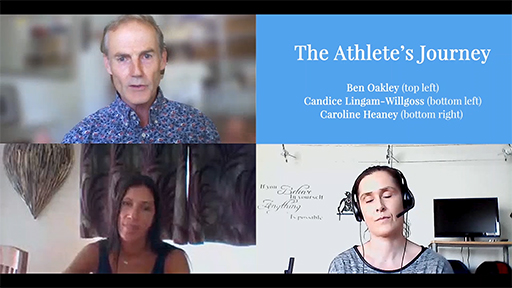6 Bringing it all together
As you near the end of this course, this section provides an opportunity to reflect on what you have learned about career transitions in sport, and what you can do to support athletes (or yourself) prepare for and successfully navigate the transitions they will face.
Activity 6 Reflecting on career transitions in sport
Watch the video below in which Candice Lingam-Willgoss and Caroline Heaney, the authors of this course who you first met in Session 1 Activity 1, reflect on how the content of the course has impacted on them in various different roles, for example as an athlete, a coach or as a parent.
Then, using the following questions as prompts, reflect on what you have learned in this course and how it will affect your future practice in your role as an athlete or someone supporting an athlete.
- Will your interactions with others – for example, fellow athletes, athletes you coach, your children − change as a result of studying this course? If so, in what way?
- What actions might you now take to help prevent crisis transitions either in your own career or that of the athletes you support?
- What actions might you take to help prepare yourself or the athletes you support for both normative and non-normative transitions?
- What are the key lessons you have learned about career transitions in sport?

Transcript: Video 6
Discussion
Candice and Caroline reflected on how the content of the course had influenced the way they interact with their own children and other athletes as they progress through various transitions both ‘within career’ and ‘post career’ (retirement and life after sport). For example, Candice reflected that writing the course has encouraged her to think more about supporting her daughter through career transitions in sport as she gets older. In her role as a sport psychologist, Caroline reflected on her work with injured athletes and the importance of having an awareness of the psychological impact of this difficult unexpected transition.
Reflecting like this is a useful way to consider how what you have learned in this course can be applied to your everyday life. Hopefully, the course has led you to consider the psychological challenges and opportunities of career transitions and the importance of preparation.
You may have reflected on how you can integrate more sport psychology into own your role in career transitions (e.g. coach, instructor, athlete, parent). You may also have reflected on how you can encourage athletes to think about the future and develop their identity outside sport.
